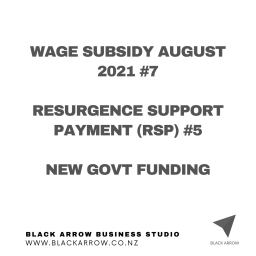
Are you ready to transform your great idea into a thriving business? The reality is that more new small businesses fail than succeed each year. However, this fact shouldn’t deter you from pursuing your dream. To test both your idea and yourself, consider answering the following questions.
Managing a business can put your resilience to the test. For some entrepreneurs, working long and unpredictable hours without much break is the norm until they start seeing profits.
Being successful in running a business requires several key qualities:
- Passionate: Without it, overcoming obstacles can be extremely challenging.
- Prepared to make changes: You may have to make adjustments in your spending habits and social life, at least while the business is still in its early stages.
- Good at managing risk: It can take time before you establish a stable revenue stream.
- Persistent: There will be times when things don’t go as planned.
- Open to learning new skills: You may have to handle various responsibilities, including being the CEO, bookkeeper, sales team, and cleaner until you can hire specialised staff or consultants. You’ll also have to develop your business’s product or service and determine how to market it.
If you’re considering becoming a contractor, here are a few tips, tools, and resources that can assist you in the process.
Distinguishing between a good idea and an idea that can serve as a foundation for a successful business can be significant. Frequently, the most prosperous concepts are the simplest, such as recognising a market gap that can be fulfilled with a new product or service or modifying and enhancing an existing business idea.
Before quitting your job, borrowing money, or making significant changes to your life, take the time to evaluate your business idea carefully.
Want to do business for good?
Making a difference with your purpose-led business
Before pursuing your business idea, ask yourself if it addresses a problem or meets an unmet need for the public or other businesses.
If the answer is negative, it’s best to abandon it and start afresh.
If your answer is affirmative, assess the scope of the issue or need. If it’s minor, you may have difficulty generating sales. You must address a significant problem or offer something unavailable elsewhere.
This is a crucial element of business planning. Creating a basic business plan, even a single-page document, can help you evaluate the viability of your idea.
Countdown to launch
Carlos Chambers and his team spent six months conducting research and speaking to accountants in New Zealand and Australia to refine their software idea for Common Ledger. Their idea was software that could streamline the information accountants received from their clients’ various programs.
“We learned there was this really deep problem that accountants around the world were facing. That’s what we were looking for — a huge problem, huge opportunity and a huge way to really help this industry move forward.”
After this, they created an 18-month plan and a three-to-five-year strategy to transform their start-up into a fully-fledged company. They have launched in both countries and have raised over $1 million.
“We’re close to our targets on our initial forecasts. We’ve brought on the right board. We’ve hired the right team members. All these things are probably the result of thorough planning. We would never have been able to usefully create our strategy if we hadn’t done that first six months of research.”
To succeed in business, you will likely be competing against other companies unless you are offering a truly unique product or service. Therefore, it is crucial that your products or services stand out from the competition.
Developing your unique selling point (USP)
Developing personas is a useful step to take as you refine your business idea. By creating fictional profiles of your ideal customers, you can better understand their values, concerns, needs, and where to find them.
Consider researching the pricing strategies of your competitors and determining what they charge for similar products or services, as well as how much your potential customers are willing to pay for your offering. You may want to survey a sample group to gather this information. Additionally, check whether there are standard industry prices for your type of product or service.
It’s also essential to consider the perception of your pricing. If you charge less than your competitors, your product or service may be viewed as inferior. On the other hand, if you charge more, you must be able to justify this with high-quality products or superior service.
It’s important to calculate the necessary earnings to cover sales expenses and monthly overheads, as well as estimate future income and expenses to determine the profitability timeline. If projections indicate a delay in profitability, such as several years, it’s crucial to assess the availability of funds to sustain the business.
How much will it cost to start up?
Once you have devised a fundamental strategy and conducted some financial calculations, it’s essential to assess the necessary funds to commence your business.
Certain markets are more competitive and challenging to penetrate than others. For instance, if your local market is saturated with cafes, what guarantees your success over others?
Consider the following:
- How many competitors exist in the market?
- Are any of them in direct competition with your business?
- How feasible is it for others to replicate your business model?
- What distinguishes your business from competitors? What unique value proposition can you offer to customers that others don’t?
How to research your market and competitors
Will I sell overseas?
In case your business prospers, would you consider selling your products or services overseas? While exporting might not be your current plan, it’s beneficial to consider it for future prospects.
Exporting presents several benefits, such as:
- Expansion: the global market provides a larger customer base
- Economies of scale: the cost per unit often reduces when producing more units
- Managing seasonal fluctuations: exporting can aid in stabilising seasonal changes in demand for your product.
- Spreading risk: selling to multiple markets reduces dependency on a single market
Are you struggling with accounting and business management for your business? We are here to help! Get in touch with us to discuss how our expert services can support your business’s success. Contact us today to schedule a free consultation and see how we can add value to your operations.















